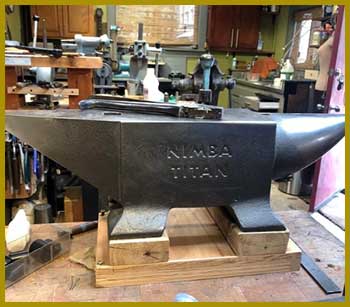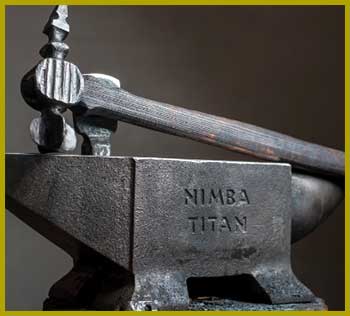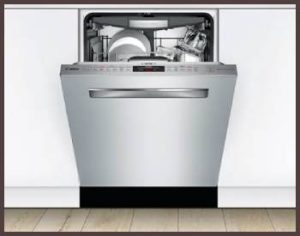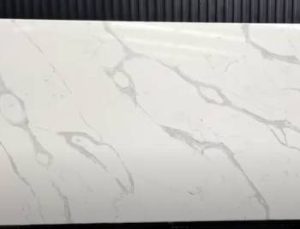When it comes to high-quality blacksmithing equipment, the conversation almost always includes Nimba anvils. Manufactured in the USA and made to last, these anvils have grown a reputation as a top-notch choice for professionals and hobbyists alike.
In this comprehensive Nimba anvils review, we’ll delve into the details that make these anvils stand out, as well as the potential downsides to consider before purchasing.
The Nimba Anvils Story
The Nimba anvils’ story is one of dedication to quality and a passion for blacksmithing. Named after the Nimba, a West African symbol of the blacksmith’s god, the brand embodies the strength, resilience, and durability that are key to any blacksmith’s trade.
The Nimba anvil’s designs are thoughtfully crafted, combining traditional features with innovative touches that modern blacksmiths appreciate.
Why Nimba Anvils The Ultimate Choice?

- Quality Material and Construction
One major advantage of the anvils is its quality.
They are made from 8640 alloy steel, a material known for its incredible toughness and impact resistance, making it a prime candidate for anvils.
This ensures that your anvil will be able to withstand repeated use without significant wear or damage.
- Practical and Versatile Design
Nimba anvils offer a balanced design, featuring a larger face and both round and square horns for versatile forging. The wide face provides a generous work surface, and the pritchel and hardy holes expand the anvil’s functionality for tooling.
- Comfortable Working Height
Comfort is key in any craft, and Nimba anvils understand this. Their anvils are designed to be used at a comfortable height, reducing back strain and improving the user’s efficiency and precision.
A Little Downsides!
- Heavy and Difficult to Move

One possible downside to Nimba anvils is their weight.
Ranging from 120 to 450 pounds, these anvils can be quite heavy.
This can make them difficult to move around, which may be a drawback for those with limited space or who need to frequently reposition their anvil.
- High Price Tag
Quality comes at a cost, and Nimba anvils are no exception.
These anvils are priced higher than some other options on the market.
However, many blacksmiths consider this a worthwhile investment for a piece of equipment that could potentially last a lifetime.
Nimba Anvils Vs. The Competition
When considering anvils, it’s essential to look at the broader market. While Nimba anvils boast a range of impressive features, how do they stack up against some of their close competitors?
Let’s dive in and see how Nimba compares with some other popular anvil brands: Peddinghaus, Ridgid Peddinghaus, and Kanca.
- Peddinghaus Anvils
Peddinghaus is a German brand known for its drop-forged anvils. Like Nimba, Peddinghaus anvils are created from high-grade steel, promising longevity and durability.
The main difference between the two lies in their construction: while Peddinghaus anvils are drop-forged, Nimba anvils are cast, but both provide superior strength and wear resistance compared to lower-quality materials.
The Peddinghaus anvils feature a slightly different design with their anvils incorporating a two-horn design – one round horn and one square horn – offering great versatility for shaping. However, Nimba anvils boast a slightly larger work surface, which some blacksmiths may find beneficial.
- Ridgid Peddinghaus Anvils
Ridgid Peddinghaus anvils are a collaborative creation of the well-known tool brand Ridgid and Peddinghaus, bringing together the latter’s anvil expertise with Ridgid’s global distribution. These anvils are also drop-forged, ensuring a dense and uniform product.
One area where the Ridgid Peddinghaus line has a slight edge is in the availability of a wider weight range, with some models being lighter and easier to maneuver than the lightest Nimba anvil.
However, Nimba’s heavier options may provide a more stable forging surface for those who can accommodate the weight.
- Kanca Anvils
Turkish brand Kanca is known for their double-horned anvils. Kanca anvils are made from forged steel and then heat treated for extra durability. While this does make them robust and long-lasting, some blacksmiths argue that the 8640 alloy steel used in Nimba anvils offers a slightly better performance under heavy use.
Kanca anvils also feature a double-horn design and have a reputation for a good rebound. However, Nimba anvils stand out for their comfort-focused design and larger face, making them arguably more user-friendly.
All things considered, it’s clear that while Nimba anvils have their competitors, they hold their own remarkably well. Each brand has its unique features and appeal, and the best choice will often depend on individual needs and preferences.
Whether it’s the type of steel, the design, the weight range, or the reputation of the brand that matters most to you, there is no shortage of excellent options in the anvil market. Yet, with its balance of quality, functionality, and comfort, Nimba remains a solid choice for any blacksmith, professional or hobbyist alike.
Frequently Asked Questions (FAQ)
The quality of an anvil can be determined by several factors. Material is key – look for high-grade steel like the 8640 alloy used in Nimba anvils. The design should be well-balanced and practical, featuring both round and square horns, as well as a sizable face for forging. The rebound, or the ability of the anvil to bounce back a hammer, is another indicator. A good anvil should return at least 80% of the hammer’s fall. Finally, the anvil’s ring when struck lightly should be clear and not too high-pitched.
Anvils are typically made of steel or iron, but the quality can vary significantly. Cheaper anvils may be cast iron, which is brittle and prone to chipping. High-quality anvils, like Nimba anvils, are typically made from tougher steel alloys, such as 8640, that can withstand the repeated impact of blacksmithing.
In Conclusion
Weighing the pros and cons, it’s clear that Nimba anvils offer a robust package for any serious blacksmith. While they may be heavy and carry a heftier price tag, their superior construction, practical design, and comfortable working height make them a strong contender in the anvil market.
As with any tool, individual needs and preferences will dictate the final decision, but Nimba anvils certainly merit strong consideration. In the world of blacksmithing, where the anvil is the heart of the forge, Nimba anvils have certainly made a name for themselves.



